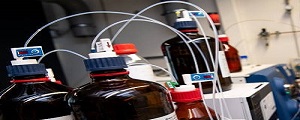Real Time PCR Analysis Service
Accurate genomic data is the backbone of modern biological research and clinical diagnostics.
Allele Life Sciences
provides high-throughput, reliable
Real-Time PCR (qPCR) analysis services
for academic, pharmaceutical, and biotech sectors. From experimental design and RNA/DNA extraction to
advanced statistical data interpretation, our molecular biology experts ensure your project meets the
highest standards of precision and reproducibility.
- Pathogen Detection and Diagnosis
- Gene Expression Analysis
- Genetic Testing and Diagnostics
- Quantification of DNA and RNA
- Genotyping and SNP Analysis
Pathogen Detection and Diagnosis
Real-Time PCR is widely used for the detection and quantification of infectious agents like bacteria,
viruses, and fungi.This service is also used to detect pathogens in food, water, and environmental
samples, providing rapid and accurate results..
Microbial Analysis
Genetic Resistance Testing
Environmental Monitoring
.
Gene Expression Analysis
A specific DNA segment—usually complementary DNA, or cDNA, produced from mRNA—is amplified in real-time
PCR, which tracks the amplified product's buildup. Gene expression levels are inferred using the PCR
product, which is proportional to the original amount of template DNA (or cDNA) in the sample.
Reverse Transcription (RT)
Quantification of Amplified Product
Genetic and Developmental Studies
Quantification of Microbial Gene Expression
.
Genetic Testing and Diagnostics
T
o determine a person's genetic composition, detect possible genetic problems, diagnose illnesses, and
forecast disease risks, medical professionals rely heavily on genetic testing and diagnostics.
Cancer Diagnostics
Infectious Disease Detection
Detection of Genetic Variants and Mutations
Quantification of Gene Expression
.
Genotyping and SNP Analysis
Since real-time PCR can evaluate numerous samples at once and is fast and sensitive, it is especially
well-suited for genotyping and SNP analysis. Here are some applications of real-time PCR in SNP analysis
and genotyping.
CONTACT
:
Kindly mail at
: allelelifesciences
@gmail
.com or
Whatsapp :
+91-8377082003





